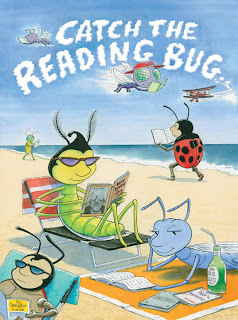
Okay, here we go with module 1.
If you wanna develop your writing skills, there's another skill that you should probably think about developing at the same time: reading skills. You don't have to love reading, and you're not even expected to read an entire novel or two a day, but you do need to cultivate this habit. Why? For a number of reasons, including:
- It helps you develop your grammar
- You pick up on new vocabulary AND you get exposed to the various *contexts* in which they can be used
- It helps you identify what style of writing you like to read...which could also be helpful in figuring out what kind of writing you might be inclined to
-You become more adept at sieving through data and retrieving relevant information: which will help you prevent long-winded explanations etc in your own writing
- It offers you a chance to identify with the characters (if its a novel) or the author
- Great source of inspiration and creative ideas
-It's a great hobby
Personal story:
-----------------
Before I actually started writing, I did a ton load of reading first. I would literally read anything. Labels on food products, newspapers, an encyclopedia that my family owned, my parent's teaching manuals and psychology books, novels (of course) etc etc. This not only exposed me to different forms of writing -- eg. concise yet explanatory (on labels and in the encyclopedia), technical (psych books and manuals), fiction (novels)-- it also helped me develop grammar and most importantly, the *context* in which words could be used. As far as Ghanaian English is concerned, I've noticed that we tend to use difficult or 'big' words - even in ordinary day English. Now, this is not a bad thing...except of course, where the word being used doesn't actually make sense. It is important to not only expand one's vocabulary, but to know the various scenarios in which the word can be used. Hence, widespread reading.
My passion and inspiration for writing actually came about as a result of reading. Like I said, I would read virtually anything I could get my hands on. One day, as I was cleaning out the storage room at home, I came across some of my dad's essays from graduate school, and I read them. It not only exposed me to a different side of my dad, it also ignited in me a desire to learn to write like he did. Hence, reading served as a great source of inspiration and allowed me to identify with the author (my dad).
That being said, it is important that you take note of your reading style as well. Are you a slow or fast reader? Do you read best in the evening or morning? Do you get easily distracted while reading? If you can figure some of these things out concerning your reading style, you have a better chance of paying attention to the writing style in books you're reading and grasping other things. Reading at the appropriate time is definitely important. As much as I loved reading (and still do), I sometimes got into trouble for it, as was the case in Class 6 when I was reading a novel in class...while the teacher was teaching. My mum happened to walk past the class (she was a teacher there as well) and saw me reading my book under the table, and she walked in, and called me out on it. Not a good look lol.
Vocabulary:
-------------
When I was younger, most of my teachers suggested we have vocabulary notebooks where we would jot down new words we came across, and check their meanings later on in a dictionary. It might sound cliche, but it really does help, so I would highly recommend it. If you do a lot of reading online, a good website is http://www.dictionary.com .
Also, try to use the new words from time to time so that it gradually becomes a part of your vocabulary, and so that you get a feel for its meaning. You can develop different techniques for remembering the meaning of new words, and I'll probably go into that later on.
Module 1 Suggestion:
---------------------------
I would highly suggest everyone try to do some reading. Particularly during these first couple of weeks, when I'm just sending out general pointers. That way, you not only get indirect exposure to being a writer (through another writer's eyes), but you can also start thinking about what kind of writing project you would want to do once you get round to it. You don't have to read an entire book. A couple of chapters, some articles, magazines etc should all be fine.
If you're not sure where to begin, I would recommend reading Paulo Coelho's "The Alchemist". It has a great storyline, very simple sentence structure and his writing style in general is simple (which I adore). You can read it online here: http://www.scribd.com/doc/7575389/Paulo-Coelho-The-Alchemist , and maybe you'll find other stuff on the same website: http://www.scribd.com .
Do let me know if you have questions, comments, suggestions etc. And if I don't have your email yet, still waiting. Ok, have a lovely day people. Stay blessed.
Best,
Jemila
*Image URL: http://library.utah.gov/programs/youth/images/CSLP2008_bugposter_000.JPG
Comments
Post a Comment